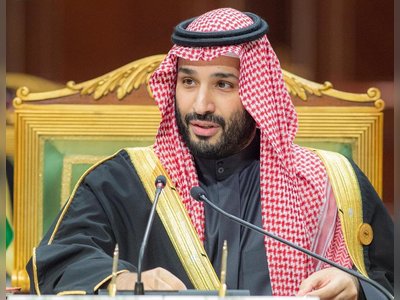
Three years on, still no justice for Sudan ‘massacre’ victims
In the early morning of June 3, 2019, Amira Kabous called her son Mohamad Hisham after Sudanese security services had violently dispersed a sit-in protest in the capital, Khartoum. Unable to reach him, Kabous thought that Hisham was either helping his wounded friends or that he had lost his phone in the scramble.
She learned hours later that he was one of at least 120 people killed in what has been described as a “massacre”.
“My family spotted his body in a photograph on Facebook,” Kabous, the vice president of the Martyrs’ Families Organization, told Al Jazeera. “My [husband] then went to the hospital and after one hour he called to tell me that he found Mohamad.”
Three years after that harrowing day, victims’ families and survivors are still searching for justice.
In December 2019, the then civilian-military government tasked a committee with releasing a fact-finding report about the killings, and pressing charges against those believed to be responsible.
But the October 25 military coup that toppled the civilian administration, and derailed the country’s brief transition to democracy, destroyed the little faith that civil society groups had in the national probe.
Many are now accusing Sudan’s military leaders of obstructing justice, while renewing calls for an international investigation.
Lost evidence?
Like most people in Sudan, Kabous believes that government forces orchestrated the violent sit-in dispersal that killed her son.
Numerous witness testimonies and open-source evidence point to a well-coordinated attack by the police, the military, and the Rapid Support Forces (RSF), a paramilitary group that evolved out of the state-backed tribal militias that killed thousands of people in the western province of Darfur.
A month after the killing of the protesters in Khartoum, the former military spokesperson Shams al-Din Kabashi admitted that the army ordered the dispersal and that “some mistakes were made”.
But the new military spokesperson, Nabil Abdullah, declined to respond when asked by Al Jazeera about allegations that the army was responsible. However, he did say that the military was cooperating with the national probe and awaiting the results.
“We cooperated with the committee, which conducted an extensive investigation with everyone in the army, including the leaders of the armed forces,” Abdullah said.
Nabil Adib, who heads the committee tasked with investigating the events of June 3, explained that the investigation has not been able to move forward because Abdalla Hamdok, who resigned as prime minister in January, has not been replaced.
Adib added that a number of unidentified bodies still needed to be examined by qualified foreign forensic experts, but that his mandate stipulates that only the prime minister – not any other authority – can approve logistical requests.
“The forensic examination of unidentified bodies is very essential to our inquiry, because we need to know the number of those who were killed [in the sit-in] and those who were injured,” Adib told Al Jazeera. “That is part of our mandate to reach that conclusion … and it can change the nature of the offence committed.”
Even before the coup, a team of medical forensic specialists from Argentina was denied access to morgues in Khartoum in July 2021, say activists and rights groups.
Yahya Abdelaziem Hussein, who founded a civil society group that aims to uncover the fate of those who went missing following the killing of the protesters on June 3, said that Sudanese forensic experts have previously accused the authorities of tampering with autopsies.
Hussein stressed that only through examining the bodies in the morgues can families of the missing find closure.
However, he warned that vital evidence could be lost by a new government committee that is tasked with quickly burying the dead to reduce overcrowding in the morgues.
“We, the committee of the missing, believe that the goal of the new [government] committee … is to bury the evidence of the sit-in dispersal and other crimes,” Hussein said.
Options abroad
Victims’ families, survivors and the country’s sprawling pro-democracy movement have all called for the International Criminal Court (ICC) to launch a probe into the deaths of the sit-in demonstrators.
But Emma DiNapoli, a legal offer for the London non-profit Redress, which advocates for an end to torture worldwide, said that the ICC is unlikely to take up the case since Sudan did not ratify the Rome Statute, which is necessary to give the court territorial jurisdiction.
DiNapoli added that the only way to bypass that obstacle is for the UN Security Council to unanimously agree to refer a case to the court, as was done during the conflict in Sudan’s western province of Darfur in 2005.
“Security Council referrals are increasingly uncommon and that’s mainly because of the geopolitical realities in the council, which is frustrating of course,” DiNapoli told Al Jazeera. “But outside of the ICC … the UN has established other accountability mechanisms.”
Some of those mechanisms require permission from the UN Human Rights Council.
Still, DiNapoli warns that UN delegates are typically reluctant to open an investigative mechanism that requires a lot of money, staff and time. Additionally, such a mechanism would only have the authority to preserve and share evidence, not prosecute suspects.
For Kabous and the families she represents, that option may at least keep the hope of justice alive.
“We first want the [military] to admit what they did and to apologise,” she said. “And then, we would want to see sentencing. All of this needs to happen first before we can talk about compensation, and if we are ready to forgive them.”
